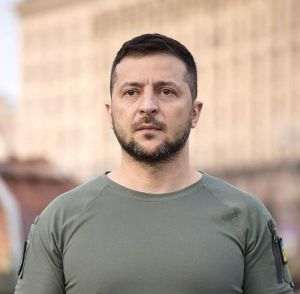Victor Ponta decided not to seek political asylum in Istanbul, instead he has returned to Bucharest hobbling, making me shed tears of compassion for the fact that his beard has grown just like that of Adrian Năstase, who has changed his "look", taking on that of a chubby prophet, even though there are still three months left until Halloween.
Since he is no longer a runaway, but a prime minister, I have followed his prompt, posted in a message on Facebook, to read "something smart about Greece", because I am interested in the subject, as are BURSA's readers.
I opened the website "româniacurată", that Ponta linked to, where I found the text written by Alina Mungiu-Pippidi, called "Greece. The failure of the first orthodox nation and what it means for us".
Out of the ten words in the Romanian title of the article the one that caught my attention was that of "Orthodox", which sounds rather crazy coming from Alina Mungiu-Pippidi, author of the play "Evangheliştii" (the Evangelists), which was described in 2005, as "blasphemous" by the Romanian Orthodox Church, as well as by the Roman-Catholic Church in Iaşi, and which shocked the Christian population in the name of "freedom of expression", which was the justification she used at the time.
That kind of history of Alina Mungiu's relationship with religion and churches has made her text more interesting, doubling my curiosity.
I have admired the way the lady turns her verbal fluency into text, but I have found that she wasn't taking advantage of the time to meditate that writing affords, because, beyond the historical efforts of King Otto of Greece (it has lorded between 1832 and 1862/1863) to induce some German discipline within the Greeks, Alina Mungiu-Pippidi's article also features one prejudiced idea, certain unclear elements, some errors and an apostasy.
For example, the first phrase from the closing paragraph of the article is unclear:
"Greece was the most advanced project to create the convergence of an orthodox country with the West."
Advanced in what sense: in terms of reaching its goal or of the its progressive-humanist nature?
Is the project of the convergence between the Catholic and the Orthodox Church, which Pope Francis has taken upon himself, less "advanced"?
Why the convergence of an orthodox country with the West and not the convergence of the West with an orthodox country?
For instance, the Vatican has never shown signs that it would want to pull the orthodoxy towards itself, quite the opposite, that it is willing to travel the Road to Nicaea, the place where the "Creed" which separates the two Churches was initially formulated.
How can one so carelessly mention one after another two notions that exist on different levels- "the West" (a metaphor for the "industrialized countries", or "developed" or "advanced"), with an "orthodox country" (which concern its faith)?
The opposition of the two notions reveals the author's prejudice that Orthodoxism is present in "backwards countries", an idea which she feels no need to argue, because she treats it as implied.
But in order to ensure rigorousness, the switch of the discourse from the notion of "orthodox" to the "West", however, requires an examination of the foundations of the differences between "Catholic" (and perhaps "Protestant") - which the text doesn't even seem to have any intention of doing.
The examination would have been necessary to find out why Orthodoxism deliberately abandons the technological and financial advantages.
For what purpose?
Can there be a higher purpose than the accumulation of capital?
Even risking economic disaster, can recovering the dignity of a nation brought down to its knees by debt be considered a higher purpose?
We are talking about two levels - that of faith and that of the social-economic policy - where Alina Mungiu, not paying attention, implicitly compares the increased social and economic efficiency of the West (catholic and protestant) to the "particularism", and the "heavily informal economies" in the Orthodox countries, disregarding the self-sacrifice deriving from the mystical "duty" assumed by Protestantism, which Orthodoxism rejects, following the path of "becoming one with God".
Alina Mungiu probably ignores the fault within the West, between the Northern countries, which are predominantly protestant, and the southern ones, which are predominantly catholic - a separation marked by the contempt for the protestant rigor, compared to the catholic fiscal frivolity.
She asks herself, towards the end, whether societies that are ruled by the influence of the orthodox faith "can successfully emulate the Western society", in other words whether Romania could be competitive "in such an ambitious a shared project as the Euro".
The question isn't even Catholic, it concerns the protestant space and spirituality.
Alina Mungiu is Romanian.
I don't know if she subscribes to any faith, because judging by the freedom of expression of her play "The Evangelists", she seems to be an atheist, just like me.
But taking a question from the protestant space and asking it to an audience in the orthodox area (which she lives in herself), is the equivalent of an apostasy.
It is perhaps what Victor Viorel Ponta found "intelligent" about her article.
• ED. NOTE
APOSTASIS~i f. 1) Public renunciation of a religion. 2) fig. Renunciation of previous convictions; abjuration of a doctrine or conception. < fr. apostasie, lat. apostasia. Source: NODEX (2002) |
















































